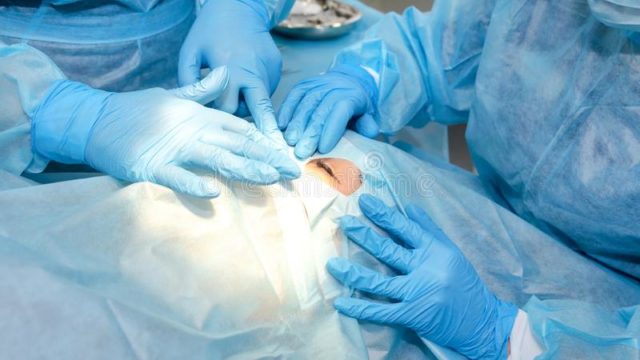The Society for Nurses in Endoscopy and Minimally Invasive Surgery – Nigeria (SNEMIS-Nigeria) says nurses should be equipped with skills to leverage emerging medical technology for improved patient outcomes.
The Founder and CEO of SNEMIS-Nigeria, Dr Johnson Ogundare said this in an interview on Wednesday in Lagos.
According to Ogundare, surgical advancements, including minimally invasive techniques, robotic surgery, and imaging technology, are poised to continue shaping the future of health care.
He said they offered transformative possibilities for faster recovery times, less pain, and fewer complications.
However, he said robotics surgery was not currently used in Nigeria, citing low funding and absence of local surgical training, among others, as factors hindering its adoption.
Robotic surgery is a minimally invasive surgical procedure that uses a robotic device to perform an operation. The surgeon controls the robotic arm using a console and viewing screen.
Robotic surgery is distinct from traditional open surgery and conventional laparoscopy, as it combines the surgeon’s skills with robotic technology to enhance the quality and safety of procedures
Ogundare, who works at Sanford Health, U.S., said minimally invasive surgeons were returning to Nigeria to practice, noting that more specialised medical centres are being established in the country.
He, however, said few skilled healthcare professionals, especially nurses could function effectively in the roles.
To bridge the knowledge gaps, Ogundare said SNEMIS-Nigeria was introducing robotic-assisted surgery instrumentation training and offering financial assistance for Nigerian perioperative nurses and healthcare professionals who may not have access to international training.
“The initiative is designed to help nurses adopt global best practices and provide essential support to returning diaspora surgeons offering advanced endoscopic and minimally invasive procedures.
“We have invested much in SNEMIS-NIGERIA because we want Nigerian nurses to be ready when robotic surgery starts, so they won’t jeopardise surgeries, and affect the patient’s outcome.
“In Nigeria today, we don’t have a CSA technician that can take care of those equipment to make sure the patient does not come down with infection.
“All this knowledge would be instilled during the training to enhance infection prevention and control, surgical safety and patient outcomes,” he said.
Ogundare disclosed that SNEMIS-Nigeria was the only organisation certified by the Nursing and Midwives Council of Nigeria to upskill nurses on minimally invasive surgical procedures.
He urged the Federal Government and relevant medical associations to strengthen competency and credentialing in Nigeria’s healthcare system to enhance trust, integrity and patient safety.
SNEMIS-Nigeria is a group of registered nurses specialised in working in Gastrointestinal Endoscopy Units and also assisting in minimally invasive surgeries (MIS) such as laparoscopy, arthroscopy, gynae-endoscopy, among others in health facilities in West Africa.
It trains registered nurses on the care, maintenance and repair of all types of endoscopy and laparoscopy equipment and instruments.
NAN


